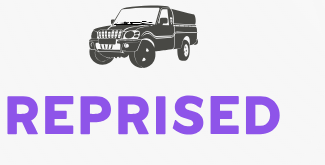Buying your first home is a significant milestone, and choosing the right mortgage is a crucial step. With various loan options available, it’s essential to understand the features and benefits of each mortgage plan. In this article, we’ll explore the best mortgage options for first-time homebuyers, including FHA, VA, USDA, and conventional loans, to help you make an informed decision.

FHA Loans: A Popular Choice for First-Time Buyers
Federal Housing Administration (FHA) loans are designed to help first-time homebuyers who may not have perfect credit or large down payments. These loans are backed by the government, making them a popular and accessible option.
Key Features of FHA Loans:
- Low down payment: As low as 3.5% for borrowers with a credit score of 580 or higher.
- Flexible credit requirements: Accepts borrowers with lower credit scores (as low as 500 with a 10% down payment).
- Mortgage insurance: Requires both upfront and annual mortgage insurance premiums (MIP).
- FHA loan limits: Varies by location, with higher limits in expensive areas.
Pros of FHA Loans:
- Ideal for buyers with limited savings for a down payment.
- More lenient credit score requirements.
Cons of FHA Loans:
- Mortgage insurance premiums add to monthly costs.
- Limits on loan amounts based on location.
VA Loans: A Top Option for Veterans and Service Members
VA loans are available to eligible military service members, veterans, and their families. These loans are backed by the U.S. Department of Veterans Affairs and offer several advantages that make homeownership more accessible.
Key Features of VA Loans:
- No down payment: Often no down payment is required, making it easier to purchase a home.
- No mortgage insurance: Unlike FHA loans, VA loans do not require mortgage insurance.
- Competitive interest rates: VA loans typically offer lower interest rates compared to other loan types.
- Eligibility requirements: Must be an eligible veteran, active-duty service member, or spouse.
Pros of VA Loans:
- No down payment required.
- No ongoing mortgage insurance costs.
- Favorable terms for eligible veterans and service members.
Cons of VA Loans:
- Only available to eligible military personnel and their families.
- Some lenders may charge additional fees.
USDA Loans: Ideal for Rural Homebuyers
USDA loans are backed by the U.S. Department of Agriculture and are designed for low- to moderate-income homebuyers looking to purchase a home in rural areas. These loans provide an opportunity for homeownership without requiring a large down payment.
Key Features of USDA Loans:
- No down payment: Eligible buyers can finance 100% of the home’s purchase price.
- Low mortgage insurance: USDA loans have lower mortgage insurance costs compared to FHA loans.
- Location requirements: Must purchase a home in a USDA-approved rural area.
- Income limits: Available to buyers with household incomes below a certain threshold.
Pros of USDA Loans:
- No down payment required.
- Lower mortgage insurance costs.
Cons of USDA Loans:
- Limited to rural or suburban areas.
- Income restrictions apply.
Conventional Loans: A Good Fit for Those with Strong Finances
Conventional loans are not backed by the government and typically require higher credit scores and larger down payments than FHA or VA loans. However, they offer more flexibility and potentially lower overall costs for qualified buyers.
Key Features of Conventional Loans:
- Down payment flexibility: Down payments can be as low as 3%, but a 20% down payment eliminates the need for private mortgage insurance (PMI).
- No upfront mortgage insurance: Unlike FHA loans, conventional loans do not require upfront mortgage insurance.
- Higher loan limits: Conventional loans offer higher borrowing limits, especially for those with good credit.
Pros of Conventional Loans:
- Lower mortgage insurance costs, especially with larger down payments.
- Higher loan limits for those in high-cost areas.
Cons of Conventional Loans:
- Stricter credit score and financial requirements.
- Requires PMI if the down payment is less than 20%.
State and Local First-Time Homebuyer Programs
In addition to these federal loan options, many states and local governments offer first-time homebuyer programs. These programs often provide down payment assistance, closing cost help, and other benefits to make homeownership more affordable.
How to Find State and Local Programs:
- Check your state’s housing authority website: Many states have dedicated websites listing homebuyer assistance programs.
- Look for grants and down payment assistance: Some programs offer grants or low-interest loans to help with down payments and closing costs.
- Eligibility requirements: Each program has specific eligibility criteria, which may include income limits, property location, and first-time homebuyer status.
Conclusion
Choosing the right mortgage plan is an essential step for first-time homebuyers. FHA loans offer flexibility for those with lower credit scores, VA loans provide excellent benefits for veterans, USDA loans make rural homeownership accessible, and conventional loans offer favorable terms for those with strong financial profiles. Additionally, state and local programs can provide valuable assistance. By understanding the features of each mortgage type, you can make a confident decision and move closer to owning your first home.

